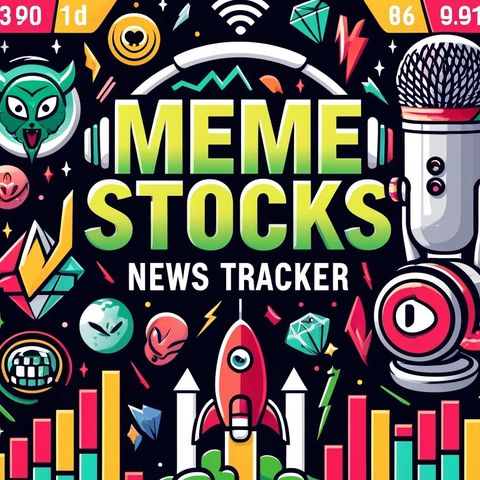Navigating the Volatile World of Meme Stocks: Risks, Rewards, and Implications

Download and listen anywhere
Download your favorite episodes and enjoy them, wherever you are! Sign up or log in now to access offline listening.
Description
The term "meme stock" references shares of companies that have gained viral attention online, predominantly influenced by social media platforms and forums like Reddit's WallStreetBets. These stocks often see rapid...
show morePopcat, initially renowned as an Internet meme, emerged as a "meme coin" with its market valuation soaring to $1.2 billion. This highlights how meme culture can extend into financial markets, influencing cryptocurrency and stock valuations rapidly based on Internet trends rather than traditional financial metrics.
The influence of significant public figures on meme stocks is profound, as seen with companies linked directly or indirectly to notable personalities such as Donald Trump and Elon Musk. Trump Media & Technology Group, for example, became a focal point for traders interested in meme stocks, likely due to Trump's high-profile status and polarizing influence.
Elon Musk has also been a pivotal figure, with his comments and tweets capable of swaying market prices. His ventures, even his casual remarks or jokes, can lead to spikes in trading volumes and valuations. An example includes Musk's tweets about various cryptocurrencies and stocks, which historically have led to volatile market movements.
The risks associated with investing in meme stocks were underlined by analysts and platforms like The Motley Fool, which cautioned investors about companies like Aston, which may require significant additional capital. The unpredictable nature of meme stocks, driven more by social media trends than financial fundamentals, makes them risky investments.
Additionally, there's been discussion in legal and academic circles about the difficulty in applying traditional securities class action frameworks to meme stocks. These stocks typically see their prices driven by collective actions of retail investors, often coordinated via social media, complicating the typical expectations and behaviors assumed in securities litigation.
One phenomenon often associated with meme stocks is the "short squeeze," a situation where a stock's price escalates rapidly higher as investors who bet against the stock rush to cover their positions to cut losses. Faraday Future (FFIE) is a case where speculation about a potential short squeeze circulated, suggesting that the dynamics of meme stocks can lead to unpredictable market scenarios that attract speculative investors.
These developments reflect broader changes in the investment landscape, where social media and viral trends can significantly impact market dynamics, often sidelining traditional investment analyses. This phenomenon underscores the merging of digital culture with finance, creating a new frontier that blends memes with market movements.
Information
| Author | QP-4 |
| Organization | William Corbin |
| Website | - |
| Tags |
Copyright 2024 - Spreaker Inc. an iHeartMedia Company

Comments